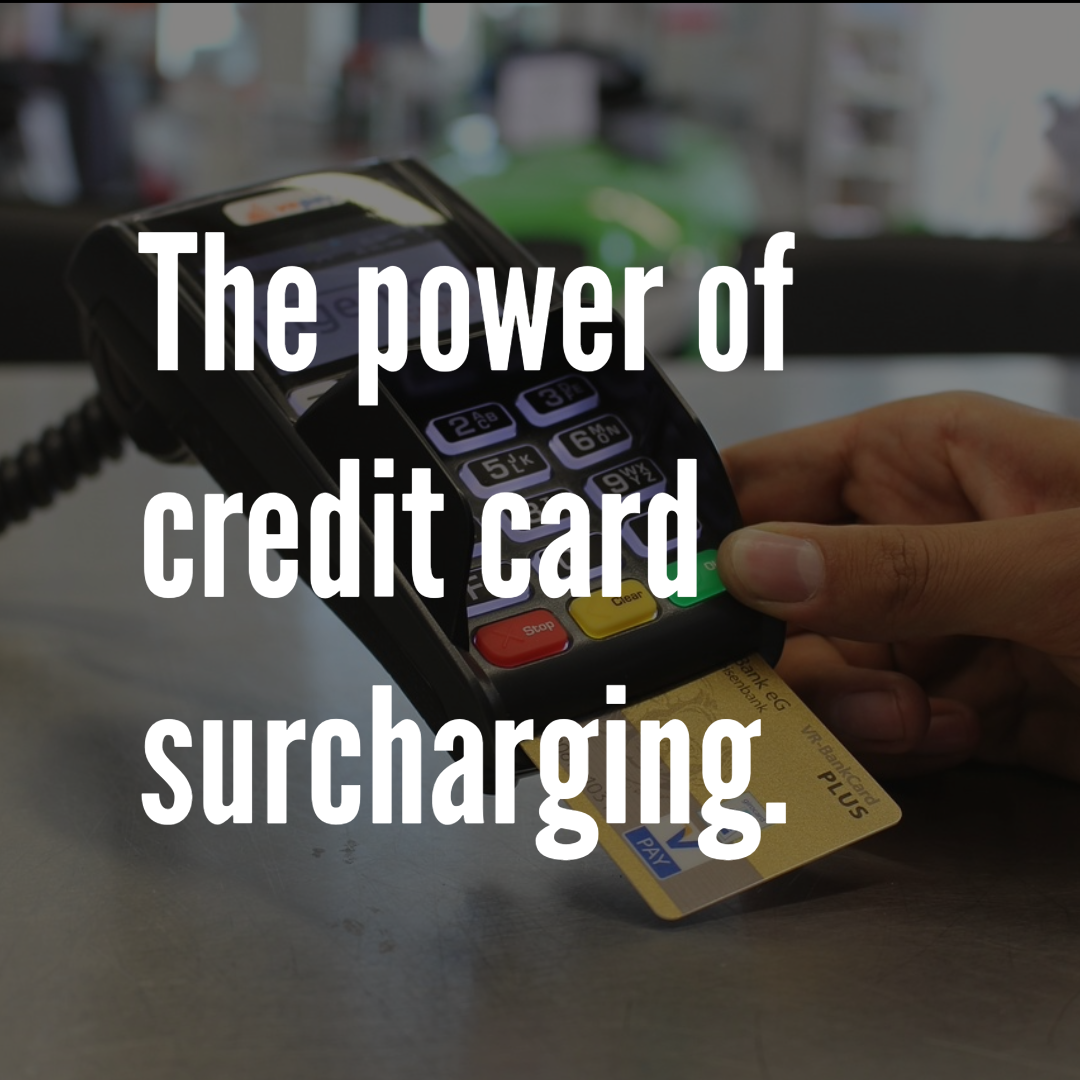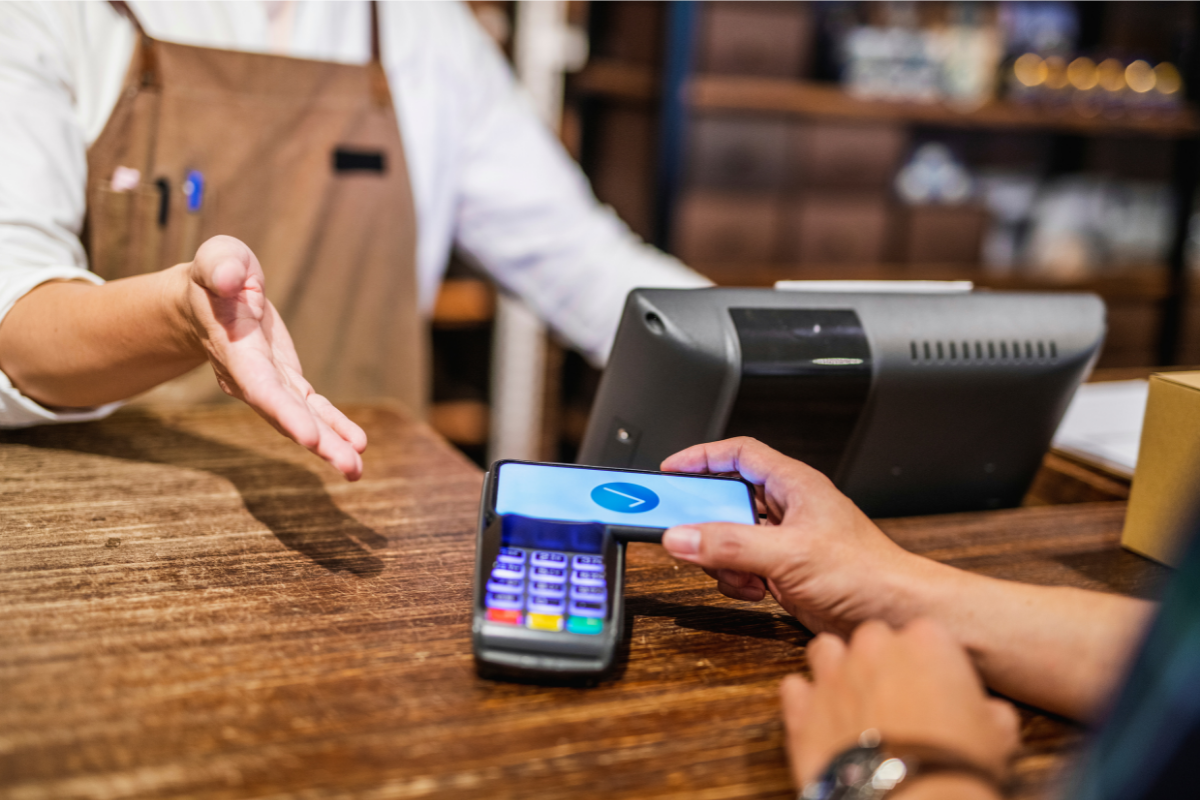
by openmedium | Mar 2, 2024 | small business, Treks
For business owners entrenched in credit card transactions, exploring credit card surcharging could unveil a path to financial optimization. Let’s explore the concrete advantages this practice can offer businesses, ensuring compliance with Visa rules.
1. Cost Efficiency Matters: Credit card processing fees can significantly impact profit margins. Through credit card surcharging, businesses can offset these fees by passing them on to customers. This strategic move can lead to substantial cost savings.
2. Fostering Transparency: Clear communication is essential for customer relations. By openly communicating the surcharge to customers, businesses establish Transparency, fostering a better understanding of the costs associated with credit card transactions.
3. Streamlining Operations: As the business landscape shifts towards cashless transactions, surcharging offers a streamlined approach to payment processing, minimizing the impact of transaction costs on operations.
4. Reinvestment for Growth: Alleviating processing fees through surcharging frees up resources for business reinvestment. Whether upgrading equipment, enhancing customer experiences, or expanding offerings, surcharging can fuel business growth.
Understanding Visa rules is crucial when implementing compliant surcharging. Stay informed about local regulations and ensure compliance to navigate the surcharging landscape effectively. If you have questions or require guidance, feel free to ask for our expert advice.
Here’s to unlocking the potential for increased profits and simplifying the intricacies of your payment processes within the bounds of Visa rules!

by Brendon Degner | Jun 29, 2022 | Merchant Services, small business
The successful operation of a food truck depends on many factors, but one of the most important is speed of service. 81 percent of all transactions are cashless, so having an efficient means of accepting credit cards is one of the best ways to keep your line moving. One way of doing this is incorporating a sophisticated point of sale (POS) system that includes payment processing software. Not all POS systems are created equal, however. In addition to being able to accept card payments, there are a few key features that a good food truck POS should not be without.
Top Food Truck POS Services
1. Offline Capability
As a food truck vendor, you cannot always guarantee that you will be within range of WiFi. A good POS should offer full functionality even when offline. Many POS systems utilize a cloud backup system that will sync new data once you are back in range of WiFi. This is ideal and provides peace of mind should you have a bad connection or no internet access.
2. Inventory Monitoring
Food truck service can be chaotic. You are running through so many customers so quickly that, suddenly, you might run out of something without realizing it. Certain POS systems, like Revel, keep track of your stock and automatically update menus according to what is available. This can prevent unnecessary closures or refunds to disappointed customers.
3. Marketing
A good food truck POS should offer some form of marketing to existing and potential customers. Square, for example, provides both free and paid email marketing based on your customer profiles; Touchbistro comes with automated popup suggestions for a logical upsell. Whatever you use, your POS should offer some means of reaching new customers and increasing the amount they spend with you.
4. Contactless Payments
In the wake of COVID-19, many individuals still prefer to have as little in-person contact as possible. The best food truck POS will be able to accommodate contactless payments. One method is by generating a one-time QR code that can be used for ordering and payment. Rezku and Square offer this as an option.
5. Loyalty Program
It’s never a bad idea to encourage customers to come again, and a loyalty or rewards program is a great way to accomplish this. Most POS systems have the capability of creating a custom loyalty program, as well as custom gift cards.
6. Online Ordering
In previous years, food trucks were more of an in-the-moment kind of experience. Nowadays, however, most food truck vendors have the option to order your food online and pick it up in person. To stay competitive, you will need a POS that allows for online ordering and syncs with your available inventory.
7. Customized Tipping
Again, over 80 percent of transactions these days are cashless. This means your tip jar might be woefully empty if you do not offer a means of tipping electronically. A food truck POS should give customers the option to tip in varying percentages or enter in a custom amount.
Get Help Finding the Right Food Truck POS
There are many great options for your food truck POS, each with its own associated fees, contracts, and services. A merchant services broker is familiar with all sorts of payment processing and POS systems and can help you find the one that is just right for your business. Summit Payments helps all sorts of business owners in Colorado pair up with their ideal merchant services provider and point of sale system. Contact our office today to get started.

by Brendon Degner | Jun 22, 2022 | Merchant Services, resources, small business
Recently, the use of virtual credit cards (VCCs) has become a popular means of paying for goods and services online. VCCs are temporary credit card numbers that allow a consumer to complete a transaction online without providing their real account number. This can add an extra layer of security to purchases involving credit cards.
How Do You Get a Virtual Credit Card?
VCCs are provided as a service by certain banks and credit card companies. If your card provider offers this feature, you can request a virtual credit card through the company’s online portal or associated mobile app. Capital One’s Eno, for example, is an online virtual assistant that generates random credit card numbers for members.
Once you submit your request, you will be issued a temporary credit card number, expiration date, and security number. Transactions using VCCs will show up on your bank statement as if you had used your regular card number.
How Do VCCs Keep You Secure?
Many virtual credit cards are designed to be used only once. This means that, as soon as a payment is complete, the credit card number is no longer valid. In such cases a shopper need not worry about a data breach, since their credit card number can no longer be used by anyone.
In other cases, a virtual credit card may have a longer expiration date. In the event of a security issue, you can simply cancel the virtual card instead of having to close the entire account and wait for a brand new card to be issued.
Some virtual credit cards also allow you to set spending limits, which can protect you from fraud and also help you budget for certain vendors.
Cons of Virtual Credit Cards
Like most forms of payment, VCCs are not without their drawbacks. The main issues arise when a physical card is needed to verify a transaction. For example, many hotels require you to present the card with which you booked a room online. If you used a VCC, that number will not match and could cause issues with confirming your reservation.
You may also run into issues with returning goods to a merchant. Although VCCs are becoming much more commonplace, many stores still need a credit card in order to provide you with a refund. If you do not have a matching physical card for them to swipe, you may be forced to settle for store credit instead of a refund.
Keep in mind, also, that virtual credit cards can still be subject to cyber threats. If your VCC is not designed for single use, the number can be stolen and used to make fraudulent transactions. If you have more than one VCC, it will be extra work to monitor all your card numbers for unauthorized purchases.
Keep Your Business Secure
Accepting credit cards is essential in staying competitive as a business. Finding a merchant services provider that is within your budget and keeps your customer information secure is one of the most important steps you can take to grow your business.
If you need help finding the right way to accept credit card payments, contact Summit Payments Co. We can match you with the right provider and help you negotiate the most reasonable fees available.

by Brendon Degner | Jun 7, 2022 | Merchant Services, small business
ACH payments are a popular means of transferring funds, especially for small businesses. But what, exactly, is an ACH payment, and how is it processed?
ACH stands for “automated clearing house.” This is an electronic network that connects every bank in the US and allows for a seamless transfer of funds via computer. It is, essentially, a way to write an electronic check.
There are many applications for ACH transfers, but some of the more common uses for small businesses include:
- Automated bill pay
- Direct deposit for employee paychecks
- Tax payments
- Vendor payments
An ACH payment is also known as an Electronic Funds Transfer (EFT).
What is an ACH Transfer?
ACH and EFT payments utilize banking information to either send or receive money from an authorized account. The transactions fall under two categories: credit and debit.
When the ACH is used to send money, as in the case of employee payroll, this is known as an ACH “credit” transaction.
When an EFT involves pulling money from another account as payment, this is called a “debit” transaction. ACH/EFT debit transactions are typically recurring bill payments, such as mortgage and utilities.
In either case, a bank account number and a routing number (or blank check) are required to set up the transfer of funds. Funds are sent and received based on direct communication between the Originating Depository Financial Institution (your bank, perhaps) and the Receiving Depository Financial Institution (your mortgage lender’s bank, maybe).
ACH Payments versus Wire Transfer
In theory, ACH payments may sound a lot like wire transfer. Funds are sent electronically from bank to bank, after all. This is really where the similarities end, however.
A big difference between ACH transfers and wire transfers is the time it takes to receive the money. Wire transfers are processed in real time and arrive within hours of the request. ACH payments, on the other hand, are processed in batches around three times per day. This means it can take, on average, 3-5 days to receive these payments.
Because of this, wire transfers tend to be much more expensive than ACH payments. They are usually employed in case of emergency, while ACH/EFT transfers are utilized for expected or recurring payments.
Why Would You Want ACH Payments Instead of a Debit or Credit Card?
The main reason business owners like ACH transfers is because they are typically much less expensive to process than credit and debit cards. While credit cards can charge up to 2.5% of the total sales price (plus additional fees like convenience and service fees), ACH merchant services providers generally charge no more than 1 percent.
This is not to say there aren’t drawbacks associated with accepting ACH payments. Aside from the increased processing time, ACH payments are not guaranteed. Because of this, you always run the risk of an EFT being denied for reasons like insufficient funds.
Get Help Setting Up Merchant Services
In the end, most business owners opt for a combination of card and ACH payments. They can reap the benefits of quick processing and guaranteed funds in the form of credit and debit cards, while saving money on recurring transactions using EFTs.
Discussing your options with a qualified merchant services broker is a great first step in setting up your payment processing system. At Summit Payments, we are well-versed in all aspects of payment processing, from security compliance to the latest trends. Contact our office to get started today.

by Brendon Degner | May 24, 2022 | Merchant Services, small business
E-commerce describes the buying and selling of goods over the internet. It is an extremely common form of business, with a majority of retailers offering some means of purchasing items directly from a website.
Many payments accepted by e-commerce sites are categorized as “card not present” transactions. This means that a physical card is not needed in order to pay. CNP transactions may also occur over the phone or through the mail.
CNP transactions on e-commerce sites typically involve the buyer filling out a series of fields, including card number, expiration date, and zip code. You are expected to provide additional supporting details, such as a billing address and shipping address. Other than this self-supplied information, however, there is no other means of verifying that the shopper is an authorized user of the card.
As you might expect, CNP transactions are at an increased risk of fraud versus card present ones. Payments involving the presence of a physical card, such as those at a brick and mortar establishment, have additional security measures to prevent unauthorized use. A debit card, for example, requires a pin; or a credit card might be matched with a photo ID.
When a fraudulent transaction occurs, the responsibility ultimately falls on the business owner. You will need to return the payment, accept the cost of lost merchandise, and may have a chargeback fee incurred by your payment processor.
To avoid such situations, you will want to be aware of warning signs to look for. There are a few common indications of potential fraud, and being able to spot them will spare you a lot of stress and help you avoid bogus sales and chargeback fees.
Signs of E-Commerce Fraud to Watch Out For
- Multiple orders of the same item
Fraudsters will target high ticket items and buy as many of that item as they can before the stolen card is maxed out. They can then resell the item for actual cash.
- Multiple orders to the same address paid for with different cards
Individuals using stolen credit card information will alternate between cards to avoid suspicion. If you are sending multiple shipments to the same home that have been paid for with several different card numbers, take a closer look.
- Large orders with overnight shipping selected
Credit card thieves want to complete their transactions to go through as quickly as possible to avoid detection. They will often make extremely large purchases and pay for expedited or overnight shipping in the hopes they will have the item before the cardholder even notices a fraudulent charge.
- Different shipping and billing addresses
This is not necessarily a cause for concern when it happens once in a while. But if you notice that the same shipping address has a consistently different billing address, it is a red flag.
- Declined transactions
Repeatedly declined transactions are a big sign of fraud. A credit card thief does not know precisely how much is on a card, and he or she may attempt multiple times with different cards that are also declined.
In that same vein, be aware of “card testing.” Scammers will attempt one or two small purchases with a card to see if it works, then make a much larger purchase.
Other Types of E-Commerce Fraud
E-commerce fraud does not always involve a stolen credit card number. Another type of fraud that is on the rise is something known as “return fraud.” This might involve a legitimate purchase but with the malicious intent of returning the item for financial gain. Some examples of return fraud include:
Switch Fraud-a buyer purchases a working item and returns an identical, but damaged, item.
Receipt Fraud-using stolen or forged receipts to return an item for profit. This may also involve purchasing goods on sale or from a different store and returning them to another store where they cost more.
Inventory depletion-buying out a seller’s inventory and re-selling the goods as your own for a higher price. Unsold merchandise is then returned to the original vendor.
How to Avoid E-Commerce Fraud
The first step in avoiding credit card fraud on your e-commerce site is making sure your payment processing system is secure. A qualified merchant services broker will inform you of additional cybersecurity risks and help you find ways of protecting your business from attacks. If you are an e-commerce site and need assistance updating and improving your security, contact Summit Payments to get started.

by Brendon Degner | May 16, 2022 | Merchant Services, small business
The ability to accept electronic payments, especially credit and debit cards, is essential for most contemporary businesses. These payments are convenient and secure, and allow both the company and customer to keep instant track of financing through online maintenance. They also cost the business owner. While they are almost always worth it, many businesses may wonder if they are paying too much for merchant services.
Merchant services provide the means to transmit financial data from the customer’s bank to merchant bank; they may also provide the necessary point of sale equipment. They charge various fees in exchange for these services.
The fees assessed by merchant service providers can vary widely from business to business, even amongst direct competitors. It is a good idea to review your statements to determine whether or not you are being overcharged. You can make a fairly quick assessment by asking yourself a few questions.
How to Know If Your Credit Card Fees Are Too High
1. Were You Signed Under an Introductory Rate?
Low introductory rates for many merchant services providers can be quite attractive. You can try a merchant services provider at a low rate for a certain period of time, after which you will be locked into a contract at a much higher rate. You might be told you can cancel any time before the contract date kicks in. So what is the risk?
The trouble is that most business owners are busy. While these offers may be genuine, the model is counting on individuals to forget to cancel their service before the contract kicks in. It is not dissimilar from certain internet service providers or online streaming services offering you a “free trial.”
If you were initially signed to a low introductory rate offer and continued your plan through that provider, you will want to review your statement with a licensed broker to ensure your fees are competitive for your type of business.
2. Are You PCI Compliant?
The Payment Card Industry (PCI) requires that businesses using merchant services remain compliant with certain standards of security. If a business is found non-compliant, they are charged a monthly fee until compliance is achieved.
Your credit card processor should work with you to help you become PCI compliant to eliminate these fees. If months have gone by and you have received no assistance in this matter, it is time to look for a new provider.
3. Do You Own Your Payment Terminal?
Many merchant services providers offer the option to lease a payment terminal. Payment terminals are electronic devices that allow a customer to swipe, insert, or tap a credit card and enter secure information, like a PIN.
Depending on your business needs, you may wind up spending thousands of dollars just on your terminals. It can, therefore, be tempting to lease your devices to save on a monthly basis.
Keep in mind, however, that you will be paying interest rates on rented devices. The final amount you pay will be significantly higher than if you’d bought your terminals outright. If you can afford it, pay up front for your terminal devices.
4. Do You Qualify for Lower Rates?
If you are generally pleased with your merchant services provider but are unsure if your fees are competitive, ask what you can do to qualify for a lower rate for certain types of transactions. Card-Not-Present transactions, for example, are often subject to a higher processing fee due to increased risk of fraud. Providing additional details for each of these kinds of payments, such as customer address, is often enough to qualify for a reduced rate.
Get Help Reviewing Merchant Services Rates
As part of its services, Summit Payments will perform a thorough review of your merchant services statements. We will look for any discrepancies, compare competitor rates, and look for common instances where businesses are overcharged. We will also advise you on steps to becoming PCI compliant and enhancing overall cybersecurity. Call our office to schedule your consultation and start saving today.







Recent Comments